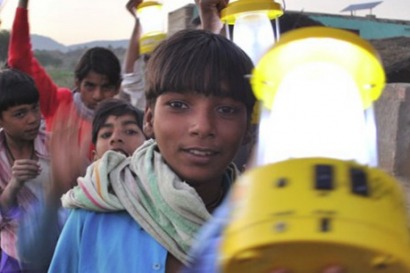
“I was particularly pleased to see the development of this Global Action Agenda because it moves us from discussion and negotiation to action and impact,” said WBCSD President Peter Bakker, who was recently appointed by UN Secretary-General Ban Ki-moon to the High Level Group on Sustainable Energy for All. “If we want to see nine billion people living well on one planet by 2050, we do not have the luxury of time. We must begin implementing those initiatives that will get us there and begin taking full advantage of the tools we have to do so quickly and effectively. Business is one of the main tools in our toolbox and to see it now used effectively is a huge opportunity.”
The Global Action Agenda charts a path forward on three critical objectives to be achieved by 2030: (1) ensuring universal access to modern energy services; (2) doubling the global rate of improvement in energy efficiency; and (3) doubling the share of renewable energy in the global energy mix.
“Business and governments have to work together in order to meet the challenges that are now speeding toward us because of an expanding global population and limited natural resources,” Bakker said. “Scaling up business action depends on smart, integrated policy frameworks to create a stable and predictable investment climate and the right incentives to drive business decision-making. Making progress on the enabling policy elements presented in the Action Agenda will help build business support so that it can be the engine that leads the way in delivering sustainable energy for all.”
The Global Action Agenda identifies 11 Action Areas to achieve the three objectives. These deliver a framework for identifying high-impact opportunities, organizing multi-stakeholder actions across all relevant sectors of the economy, and providing tangible entry points for stakeholders interested in taking action in specific areas of interest.
The agenda was developed by Sustainable Energy for All's High-Level Group, which includes distinguished leaders from government, the private sector and civil society, as well as three Clean Eneergy Ministerial ministers including: Steven Chu, US Secretary of Energy; Edison Lobão, Brazilian Minister of Mines and Energy; and Farooq Abdullah, Minister of New and Renewable Energy of India.
For additional information:

